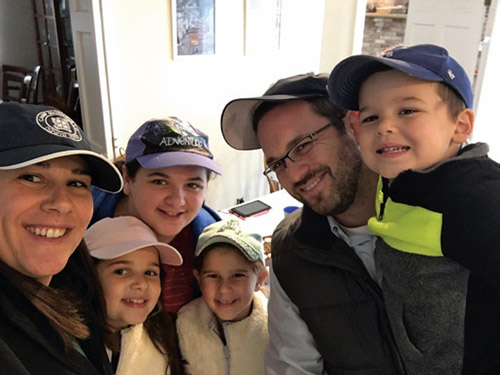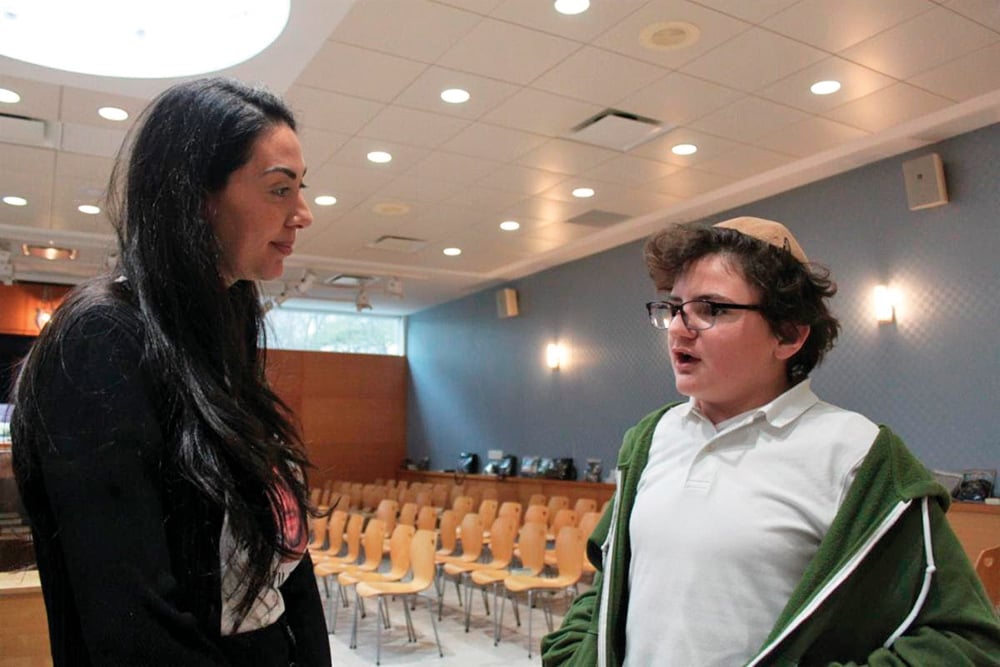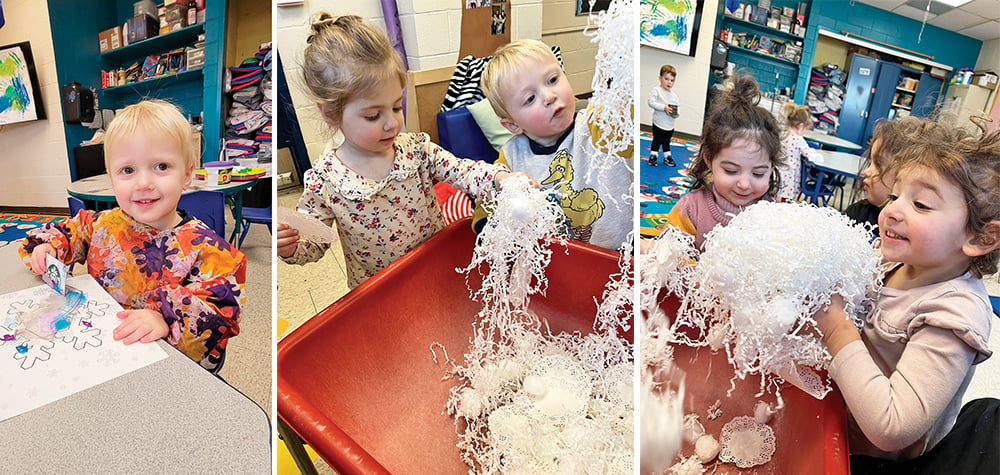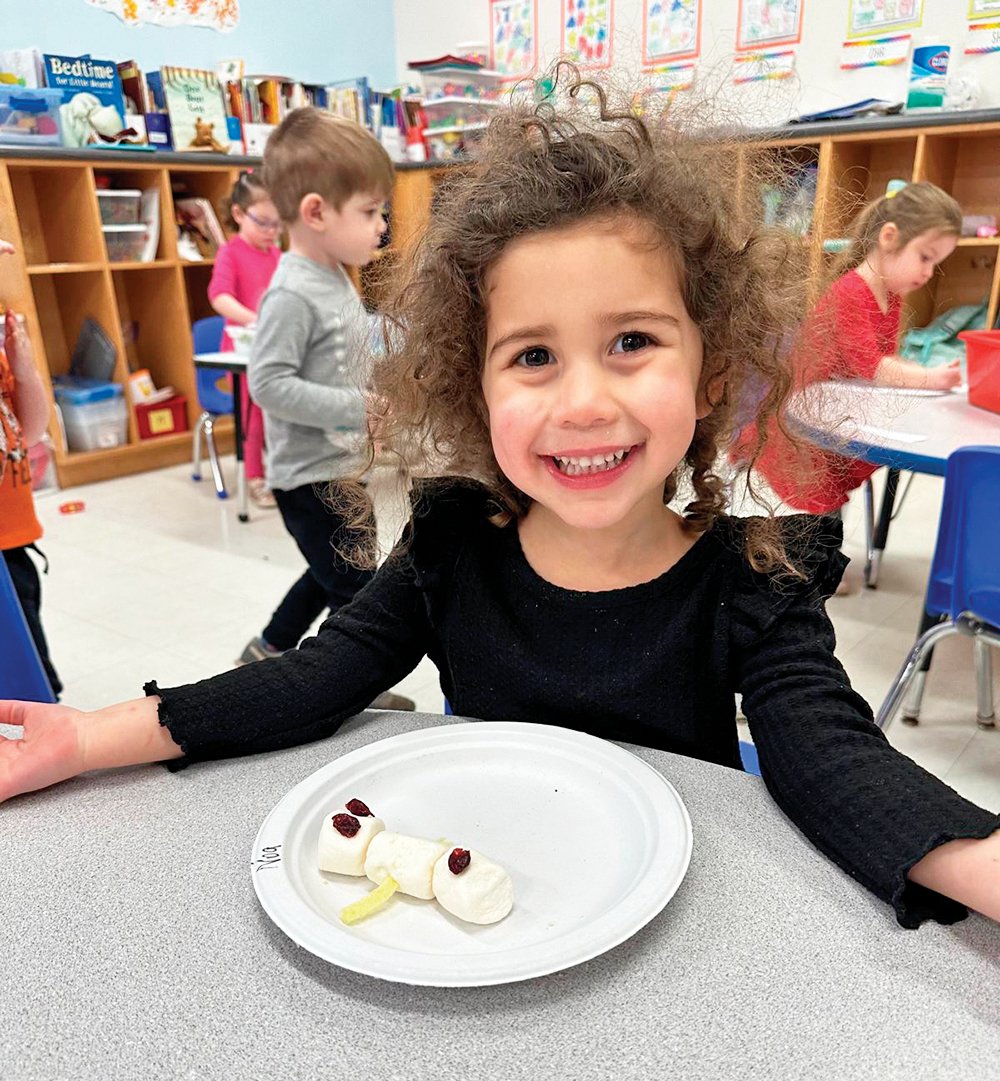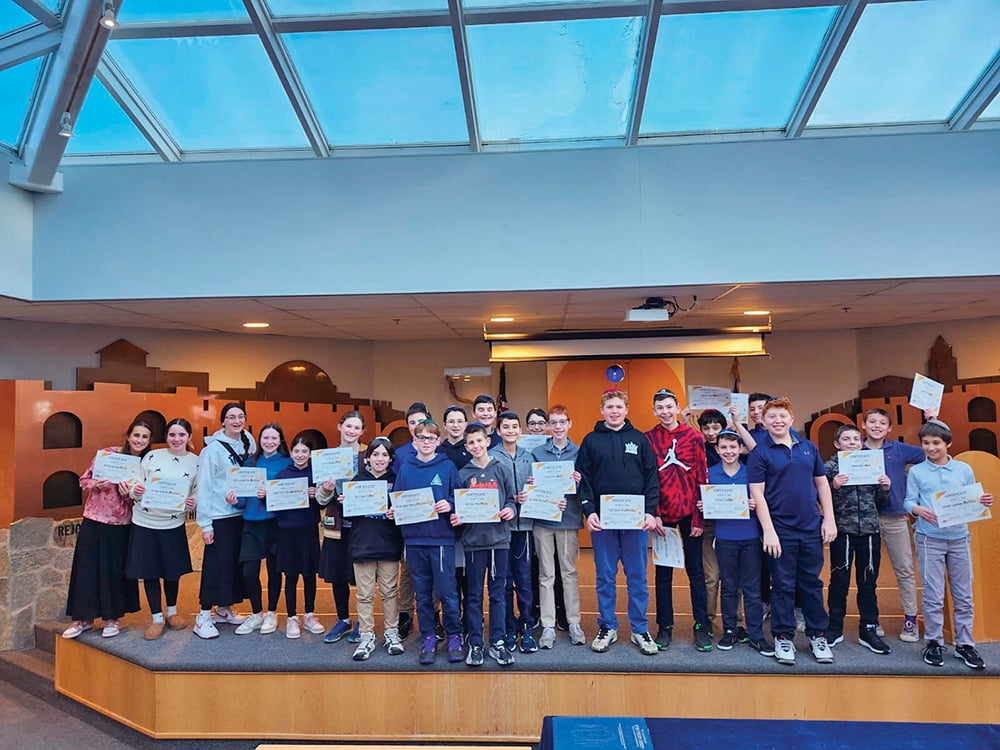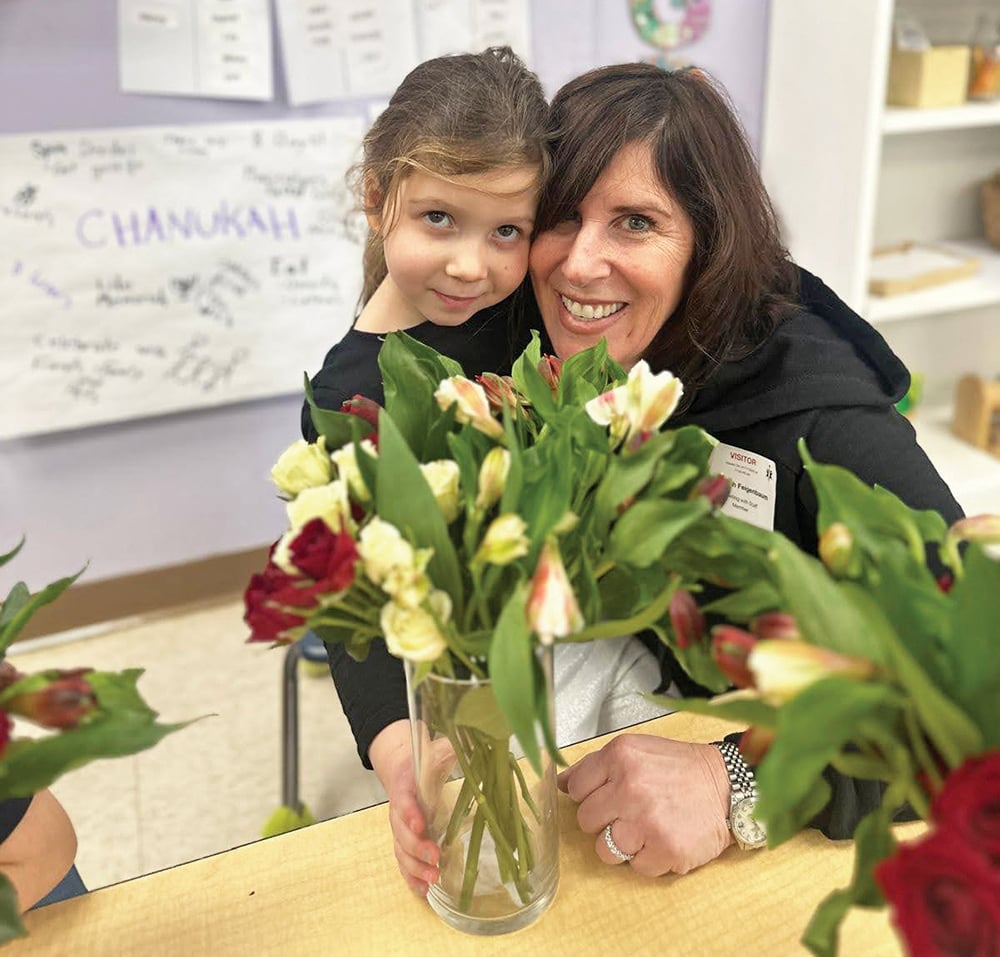


After the success of its 2018 shabbaton, the Suburban Torah community in Livingston is eager for a repeat performance. The 2019 shabbaton, to be held this year on the Shabbat of March 29-30, Parshat Shemini, is a way for the Jewish community to showcase the warmth and beauty of the township and show potential newcomers what makes Livingston, and the shul, so inviting.
Rabbi Eliezer Mischel, spiritual leader of the Synagogue of the Suburban Torah Center, commented, “If I had to give one defining characteristic of the community, it is that when you move in here, you are embraced in a very big way. It doesn’t matter who you are.”
As an example, Rabbi Mischel told the following story: “A young couple moved in across the street from me. They are not observant, but they are definitely interested. They had a baby boy. I suggested to the husband that they have a shalom zachor, and he didn’t know what that was. I said, ‘Don’t worry about it. Come to my house on Friday night and you’ll see.’” The husband and new father got to the rabbi’s home on Friday night, and there were 25 men from the shul waiting for him. “These guys all came out for a stranger. That’s the way the shul is. We do that for each other,” the rabbi added. “You have automatic friendships from the moment you move in.”
Faygie Holt, now in her fifth year at the shul together with her husband, said, “We are a diverse community religiously, but we all care about each other,” adding “The chesed is beautiful to see. Neighbor helping neighbor, no matter what the reason. We all look after each other.”
This year Suburban Torah is celebrating its 50th anniversary, so participants can expect the shabbaton to be extra-special. In fact, two weeks prior to the shabbaton, on March 17, the shul is hosting its annual dinner, which will mark its golden anniversary with a performance by comedian Joel Chasnoff.
The Synagogue of the Suburban Torah’s 50 years have seen tremendous changes in both the shul and the community. Founded in 1969 as Livingston’s first Orthodox synagogue, under the leadership of Rabbi Moshe Kasinetz, its membership has grown to over 200 families. After Rabbi Kasinetz’s retirement in 1999, Rabbi Mordecai Feuerstein assumed leadership of the shul, and Rabbi Mischel took the reins in August of 2013.
“Two of the biggest changes during my tenure would be the influx of new families, who bring a tremendous new energy to the shul, and the growth in Torah learning,” continued Rabbi Mischel. “We have a crowd of new families, but not so many that anyone gets lost or forgotten.”
“And the Torah learning has grown so much, and expanded to a broader base. People don’t even realize what we offer. We have a weekly learning night, many new shiurim, as well as chavruta learning. We have a monthly ‘Hebrew and chew,’ which attracts a younger crowd. The guys get together and eat, learn and have fun. I am excited about and proud of this growth,” the rabbi noted. “There has been culture change in really positive ways over the last number of years.”
These leadership changes occurred alongside changes to the synagogue building itself. The shul was housed in its original building for less than a decade before moving to its current location on West Mt.Pleasant Avenue. In 2000, the synagogue completed an extensive renovation as a response to the growth of the congregation. The expansion included a new sanctuary, Beit Midrash, redesigned social hall, expanded library, office facilities and nursery school.
To accommodate the growth of the shul, and with thoughts to the future, the synagogue is embarking on a $3 million capital campaign to coincide with the 50th anniversary annual dinner. The plan is to make improvements to the physical structure to ensure its longevity, and the shul’s vitality, for the next generation.
Current members are excited to be part of the shul’s growth, and view this capital project as an indication of how far the shul has come, and where it intends to be in the future. They are thrilled and proud to be along for the ride, and invite prospective newcomers to join them.
Not only is the shul membership growing, but its preschool is growing as well. The Iris Berman Early Childhood Center has been in existence for 25 years, educating children from ages 1 to 4 using a Reggio Emilia-inspired approach to learning, whereby the students discover the world around them through authentic experiences. The school’s integrated approach ensures that the children move smoothly from their Jewish world through their daily learning, including literacy, science and math, while continuing to bring the outdoor world of life and nature into the curriculum. At the heart of each day is teaching a love of Judaism and Israel.
The synagogue membership includes not only long time members and newcomers to the community, but second and third generation Livingstonites who have returned to their hometown to raise their own families.
Eric Sharret said, “I grew up in Livingston and decided to move back, as did my brother and sister. We all came back to Livingston because it is one of the most accepting Jewish communities in New Jersey. The shul has no pretense and accepts all new members as long as they are interested in being part of a growing community. Livingston is a cosmopolitan community with diverse interests but is still deeply rooted in Judaism. If you are looking for a true Modern Orthodox community, there is no better place than Livingston.”
The shul’s appeal appears to be varied, but among the themes noted by members are the commitment to chesed and the religious diversity. That diversity is evident in the size and strength of the community’s NCSY chapter, which is “strong and vibrant,” according to the rabbi. “We have so many shul kids involved, and there are so many Jewish public school kids in Livingston, it creates a different dynamic and a growth mindset.”
He continued, “Everyone is doing outreach and being more thoughtful about their religious practice. We are welcoming those who are still learning, and we are getting inspired because we are in a position to be teaching.”
The community’s diversity is also seen through the choice of educational institutions attended by the younger members of the community. The Joseph Kushner Hebrew Academy/Rae Kushner Yeshiva High School, a co-ed nursery through grade 12 yeshiva day/high school, is located within the township’s borders, offering a yeshiva education just minutes from home. The Jewish Educational Center, a yeshiva serving children from pre-K through 12th grade, encompasses Bruriah for girls and RTMA for boys, and is another educational option located in nearby Elizabeth. The Golda Och Academy is a pre-K through 12th grade school, with two campuses located in the neighboring township of West Orange, that educates based on the tenets of Conservative Judaism. For those families wishing to send their children to public school, the township of Livingston offers a stellar curriculum and educational experience.
Families concerned about the costs of suburban life or yeshiva tuition need look no further than the community’s New Family Incentive program. It offers newcomers to the community financial advantages which can begin immediately, and could total over $50,000. There are synagogue discounts and benefits, including membership and preschool, tuition discounts and even membership and camp discounts at the JCC MetroWest, located down the road in West Orange.
Beyond the borders of the shul building is a full service community, offering everything a new family might need or desire. Livingston offers housing at a variety of price points, giving buyers more for their money in every price range. The township is located along a bus route to Manhattan, bringing the city and all it has to offer within an hour’s drive. For those who prefer a train, there are train stations located in neighboring communities, and the PATH station is also a short drive away.
For observant families, once you get past the basic criteria, the next three community must-haves are typically eruv, mikvah and kosher food and shopping. Livingston covers those bases as well. The eruv was upgraded and expanded fairly recently, is checked regularly and encompasses St. Barnabas Medical Center, also located within the township. There is a state-of-the-art mikvah in town that has a separate keilim mikvah, both maintained at the highest halachic standards. As for kosher food and shopping, the greater community boasts more than a dozen kosher eateries and shopping establishments, including Shoprite’s Kosher Village; the middle eastern vegetarian Jerusalem Restaurant; Chocolate Works; 16 Handles; Super Duper Bagels; Aron’s West Orange, a full service kosher supermarket complete with takeout located less than 10 minutes away; Judaica and specialty shops, and more.
One of the very special things about Livingston is that, “we offer a viable, vibrant community in a different location. Here, you can have an impact right away,” Rabbi Mischel said.
The Suburban Torah community invites all interested people and families to join them at the annual dinner and/or shabbaton, to help them celebrate the 50th anniversary of the shul, and to become part of its future.
For more information about the Synagogue of the Suburban Torah Center, please visit www.suburbantorah.org.
By Jill Kirsch


